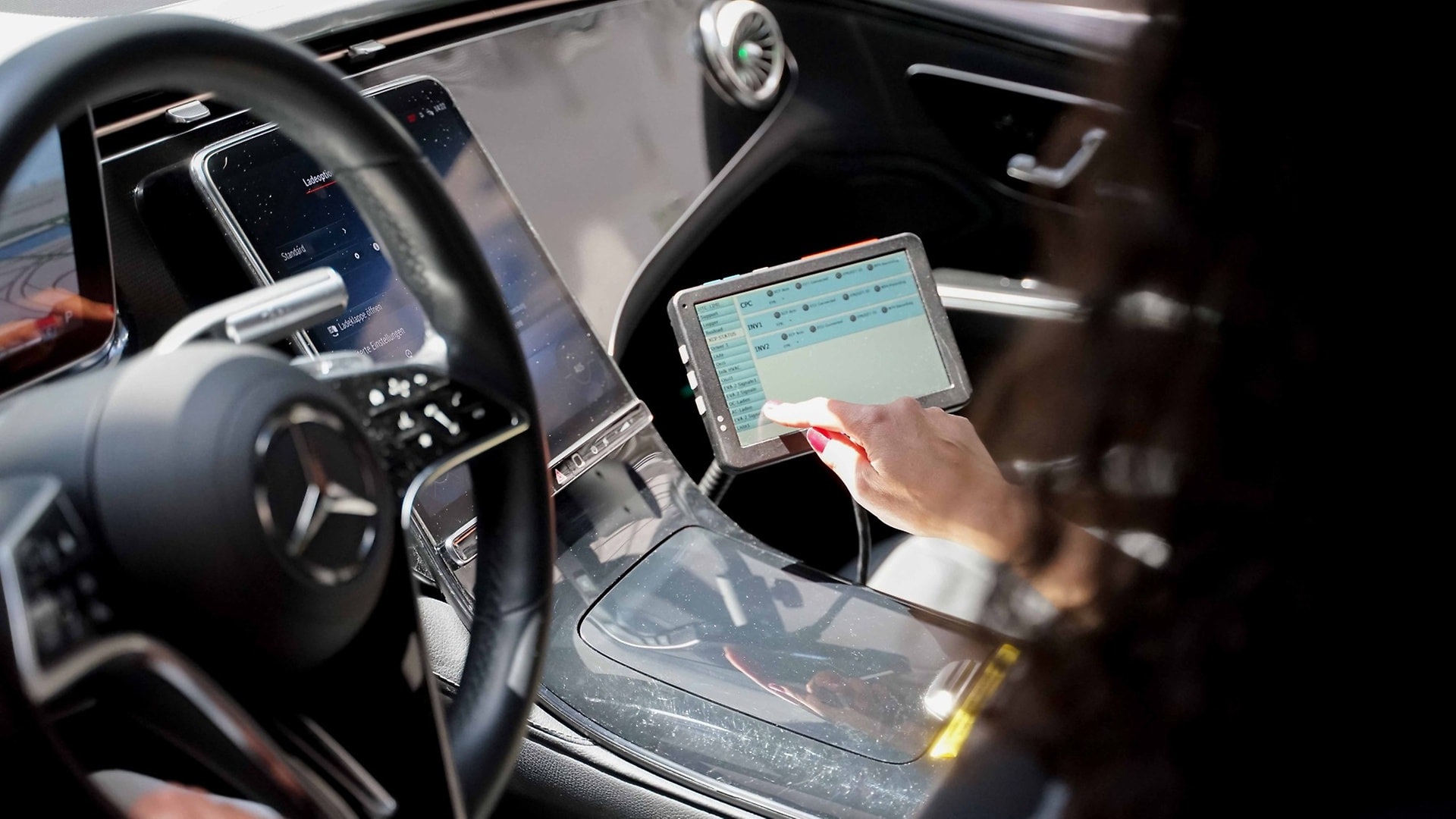And how do you and your team ensure that the software reliably fulfils all these functions?
For this purpose, we develop special "hardware in the loop" test benches that are precisely tailored to the respective battery management system. This allows us to simulate each individual cell of the battery in our laboratory and check whether the software reacts correctly to the various situations. However, our tests go far beyond the loads that battery management systems are later exposed to in vehicles on the road - so we really push the systems to their limits. Only when the software meets all the requirements does it actually get to real batteries and later into the vehicles.
How can we imagine your test lab?
You can imagine our test benches like giant game consoles, with LEDs flashing everywhere in the racks and orange wiring - there's a lot of high-tech in there. My staff always joke and have given our test stations famous names. For demanding tests, we sometimes use Hulk - where we can test very high voltages, which is no mean feat.
Tell us a little more about your team ..
Our team is roughly divided into two disciplines: The system engineers develop the test benches and models. And the test engineers design and accompany the trials. What makes my team is the close cooperation. Everyone supports everyone. For me as a manager, it is important that the team spirit fits and that all my employees feel comfortable and enjoy their work. When I select a new team member, it's not only the technical aspects that count, but also the personality.
Speaking of a "new team member": How did you actually come to join Mercedes-Benz?
Actually, I've been with Mercedes-Benz all my professional life. I am originally from France and studied engineering at the École Polytechnique in Nantes. Then I had the opportunity to do an internship at Mercedes-Benz and came to Stuttgart for my master's thesis . I hardly knew any German at that time and was completely new in a foreign country, but going to the factory with the big silver star above the gate every day was simply the greatest thing for me. I've been in love with the "Mercedes-Benz" brand since I was a teenager (laughs).
Can you explain this particular link in more detail?
This has to do with my preference for American series. In my youth I was probably the biggest fan of "Dallas". My favourite character in the series, for example, had a great red Mercedes SL - an incomparable car model. Mercedes-Benz cars simply have their own class and elegance. I said to myself: At some point you want to work for this company - and luckily that's what happened.
,xPosition=0,yPosition=1.0)

,xPosition=0.5,yPosition=0)